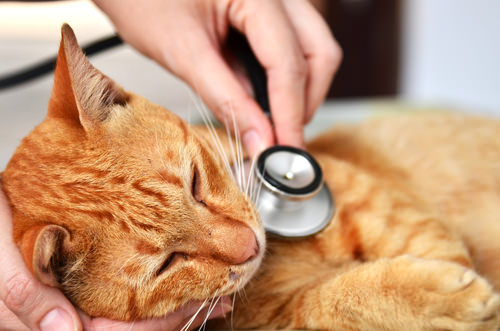Flu is scary. Bird flu, dog flu and human flu have all made the headlines. In order to be true influenza, the causative virus must be a member of the family Orthomyxoviridae. The members of this family and the genera, Influenza, must adhere to classification guidelines, so not just any virus is “flu”.
What people usually are referring to when they say “cat flu” is not an influenza infection at all. It is a colloquial term for the upper respiratory complex common among cats. This complex is found in significant percent of both sick and seemingly healthy cats in a variety of settings. 1 Although common in cats and requiring veterinary help, it is not caused by influenza virus and is usually not a cross species issue.
Influenza viruses can cause infection across different species and it is the most disturbing feature of this group of viruses. Humans have died from complications associated with influenza viruses and the topic has become a hot button for human health agencies worldwide. According to the CDC, H5N1 strain has been responsible for the most serious human cases worldwide.
It is very important that cat owners know the distinction between the so called “cat flu” and true infection with a strain of influenza. To be a true “flu”, the disease must be a result of infection with an influenza virus. Although cats have shown susceptibility to some influenza viruses, studies have shown little evidence of infection in house cats. 2
Limited cases have been reported of infection of house cats by H1N1 strain (swine flu) and the cats were reported severely affected and eventually died. 3 Cats seem to be able to be infected by H5N1 also and studies suggest a greater virulence for cats than dogs. 4
Important points:
- If your cat is acting ill and seems to have a cold or flu, it is not as likely to be influenza as the more common Feline Respiratory Complex.
- If your cat is exposed to an actual influenza virus, she might become more ill than your dog would.
- There is no vaccine for influenza approved for use in cats, but many of the pathogens involved in Feline Respiratory Complex can be effectively vaccinated for.
Any cat showing signs of respiratory congestion, coughing, sneezing, decreased appetite and lethargy should be seen by a veterinarian as soon as possible. All healthy cats should be vaccinated for the causes of feline respiratory complex as directed by your veterinarian. If you have the flu, follow the usual guidelines to avoid spread, just in case. Wash your hands frequently, carefully dispose of soiled tissues and cover your mouth and nose when you cough or sneeze.
Join in the conversation! Has your cat had the flu? Find me and other cat lovers on Facebook by clicking here.
- Vet J. 2014 Aug;201(2):196-201. doi: 10.1016/j.tvjl.2014.05.015. Epub 2014 May 15.Prevalence of upper respiratory pathogens in four management models for unowned cats in the Southeast United States.McManus CM1, Levy JK2, Andersen LA1, McGorray SP3, Leutenegger CM4, Gray LK1, Hilligas J1, Tucker SJ1.
- Microb Pathog. 2015 May;82:27-30. doi: 10.1016/j.micpath.2015.03.003. Epub 2015 Mar 6. Sparse serological evidence of H5N1 avian influenza virus infections in domestic cats, northeastern China.Sun L1, Zhou P2, He S3, Luo Y2, Jia K2, Fu C2, Sun Y2, He H2, Tu L2, Ning Z2, Yuan Z2, Wang H2, Li S2, Yuan L4.
- J Vet Emerg Crit Care (San Antonio). 2014 Nov-Dec;24(6):715-23. doi: 10.1111/vec.12179. Epub 2014 Apr 8.Acute bronchointerstitial pneumonia in two indoor cats exposed to the H1N1 influenza virus.Pigott AM1, Haak CE, Breshears MA, Linklater AK.
- Arch Virol. 2015 Jan;160(1):305-13. doi: 10.1007/s00705-014-2284-z. Epub 2014 Nov 22.Greater virulence of highly pathogenic H5N1 influenza virus in cats than in dogs.Kim HM1, Park EH, Yum J, Kim HS, Seo SH.

